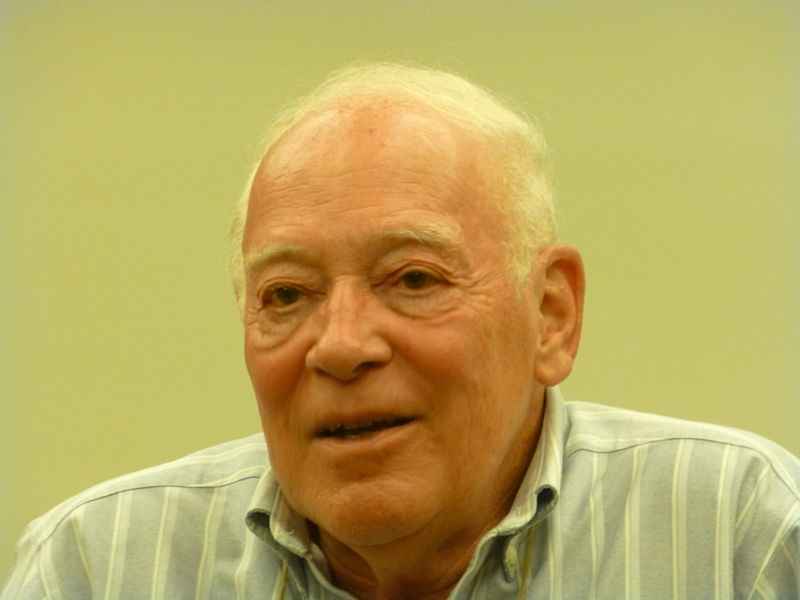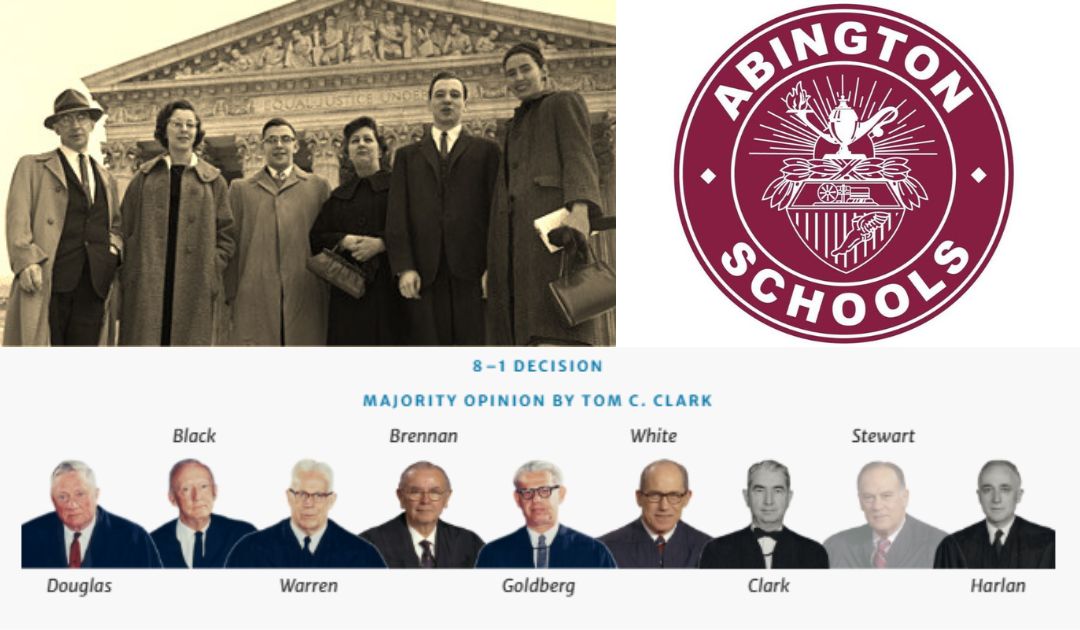Six decades ago, Abington School District was part of a landmark U.S. Supreme Court case which would decide whether requiring public school students to participate in the reading of the Lord’s Prayer or other Biblical verses was unconstitutional.
In those days, a Pennsylvania law forced public school students to start class with the reading of ten Bible verses. In Abington, the verses were broadcasted over the intercom system. If teachers did not participate, they were fired and students who did not participate were segregated from the rest of the class.
The case was argued in late February and decided by an 8-1 vote on June 17, 1963 in favor of appellee Edward Lewis Schempp.
From that day forward, public schools could no longer legally sponsor or require Bible readings and recitations of the Lord’s Prayer under the First Amendment’s Establishment Clause and the Free Exercise Clause.
The Court affirmed the Pennsylvania decision and reversed and remanded a prior Maryland decision: “No state law or school board may require that passages from the Bible be read or that the Lord’s Prayer be recited in the public schools . . . even if individual students may be excused from attending or participating.”
How it began:
In November 1956, 16-year-old Ellery Schempp silently read the Quran during the morning devotional at Abington High School. Schempp wasn’t a Muslim—he was doing it out of protest. When he refused to participate, he was sent to the principal’s office.


The Schempps via Wiley Online Library; Ellery Shempp via Wikipedia Commons
Background (courtesy of Oyez.org):
Under Pennsylvania law, public schools were required to read from the Bible at the opening of each school day. The school district sought to enjoin enforcement of the statute. The district court ruled that the statute violated the First Amendment, even after the statute had been amended to permit a student to excuse himself.
The Court consolidated this case with one involving Maryland atheists who challenged a city rule that provided for opening exercises in the public schools that consisted primarily of reading a chapter from the bible and the Lord’s Prayer. The state’s highest court held the exercise did not violate the First Amendment. The religious character of the exercise was admitted by the state.
Fun Fact:
In 2002, Schempp was elected to Abington Senior High School’s hall of fame for his accomplishments in physics. In his acceptance speech, he said, “When I left Abington in 1958, it wasn’t clear that Abington ever wanted to see me again.”
The award included the notation “Initiated school prayer suit against Abington which was eventually decided by U.S. Supreme Court in 1963.”
To listen to the oral arguments provided by Abington School District, you can click here.
For all the latest news, follow us on Facebook or sign up for Glenside Local’s “Daily Buzz” newsletter here.
Feature image courtesy of Oyez.com, The Prayer Tree

